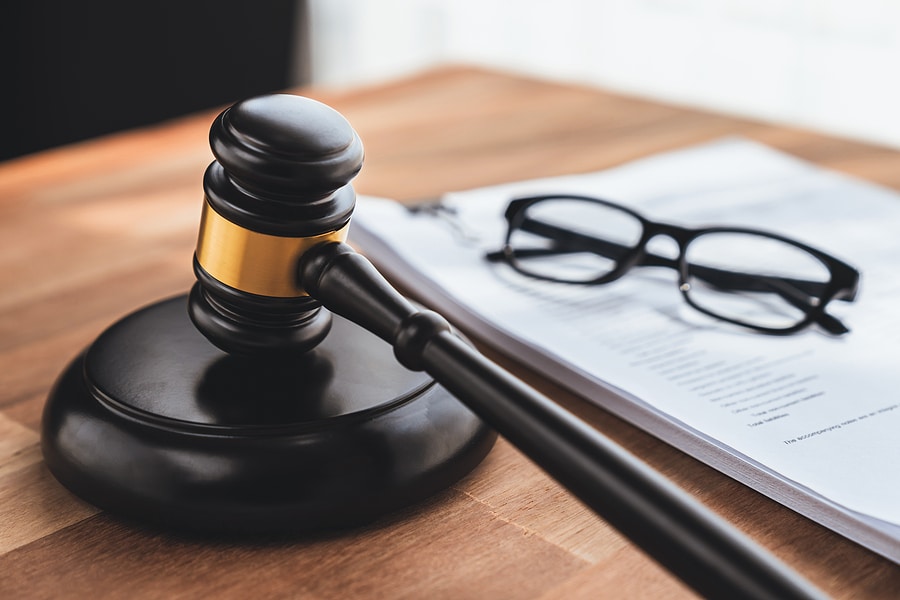There are high stakes involved when you are facing any type of domestic violence charges in Wisconsin. If you are convicted, there will be immediate impacts. You cannot and should not face the legal system alone. Otherwise, you may be subject to a rush to judgment, and you can do damage to your own case. You should always contact a criminal defense attorney as soon as you are arrested or you learn that you are being investigated.

The main things that an attorney can do is protect your legal rights in a domestic violence case and work for the best possible outcome. There are many things that an attorney would do to work towards those goals.
Penalties for Domestic Violence in Wisconsin
The most common charge in a domestic violence case is battery. Here are the possible penalties for battery charges:
- Battery is physical contact with someone without their contest. It is punishable by up to nine months in prison and a $10,000 fine.
- Substantial battery occurs when a battery causes substantial bodily harm to another individual without their consent. This crime is charged as a felony and punishable with up to 3 ½ years in prison.
- Aggravated battery involves purposely causing bodily or great bodily harm to another individual, and it can be punished with up to six or 15 years in prison (depending on the class of felony).
The Impacts of a Domestic Violence Conviction
Being charged with domestic violence can have serious ramifications on your life in both the short and long run. Domestic violence is a conviction that can and will follow you for life. Even though Wisconsin law forbids discrimination based on criminal convictions, there are some professions that will not employ someone convicted of a violent crime. In addition, you may lose your right to own a firearm. If you have a custody case, you could even lose the right to spend time with your children.
One short-term impact is that there may be a restraining order against you. It would be difficult to go on with your life unless you had some resolution of the charges.
Given the consequences, you should always have legal help when facing domestic violence charges.
Your Lawyer Can Prevent Law Enforcement from Speaking Directly to You
Perhaps the very first role that your attorney would play is protecting you when law enforcement wants to talk to you. There is no obligation to speak with the police. When you have been arrested, police cannot talk to you if you invoke your right to an attorney. Otherwise, you may say something to the police that can be used against you at trial. You could even say something that could be interpreted as a confession. Once you have an attorney, police would have to go through your lawyer to talk to you.
A Can Lawyer Identify Any Possible Defenses
One of the first roles that your attorney would perform is investigating your case to determine whether you have any defenses to the charges against you. There are some cases where you are charged on the basis of false allegations. Some possible defenses to a domestic violence case include:
- You were acting in self-defense out of a reasonable fear of harm
- You did not have intent to commit the crime (you cannot be guilty of domestic violence if what happened was an accident)
- Law enforcement did not have the probable cause to arrest you
- There are no witnesses or corroborating evidence to prove the case against you
- There was no evidence of any injury
Your Lawyer Will Explain Your Options and Work on Strategy
Once your attorney learns more about what happened, they could advise you to make the initial decision about whether to fight the charges or try to negotiate a plea deal. You may continue to mount a defense to the charges and change your mind later and accept a plea deal.
As a criminal defendant, you may not know much about the legal system and what you are facing. Facing criminal charges is stressful enough. An information vacuum can make things far worse. Your attorney would explain your legal situation and your options. In the end, you are the one making the decisions about your case. You need information and an understanding to make the best possible decisions.
Your attorney could also help with legal strategy in your case. You do not automatically end up at a point where you negotiate a plea deal. That stage could come after numerous steps in your case.
Your Lawyer May Negotiate a Plea Bargain
If you choose to negotiate with the prosecutor, they may not make their best offer at first. They may even initially propose a deal that means a conviction on more serious charges and potential jail time. You may not be as powerless in plea bargain discussions as you think, but you must negotiate for the best possible deal. An attorney who used to work as a prosecutor may have the best knowledge of the calculus and considerations that the prosecutor is facing.
Many Wisconsin counties have diversion programs that can spare you from some of the worst consequences. However, the prosecutor determines whether they will offer the Domestic Violence Fast Track program. You may be able to qualify for the program if you have not been charged with a domestic violence offense. You would be immediately sentenced and offered a deferred prosecution agreement. In the program, you could then quickly begin to fulfill your own requirements. Your attorney could make the case to the prosecutor that you qualify for the program.
Contact an Appleton Domestic Violence Defense Attorney Today
If you have been charged with domestic violence, contact the lawyers at Hogan Eickhoff today. We work to protect your legal rights as soon as we are on the case. Contact us online, or call us today at (920) 450-9800 to discuss your case in a free consultation.
